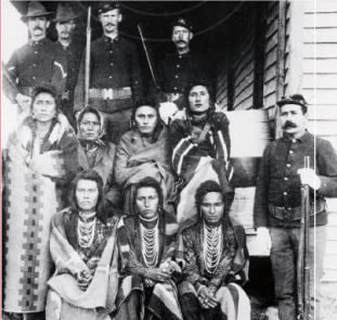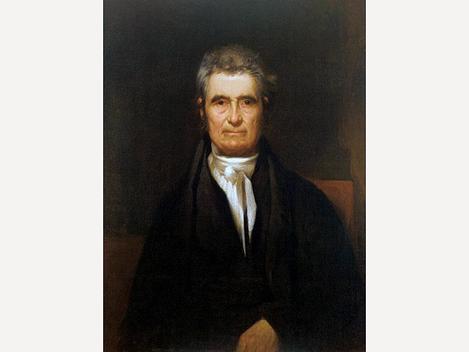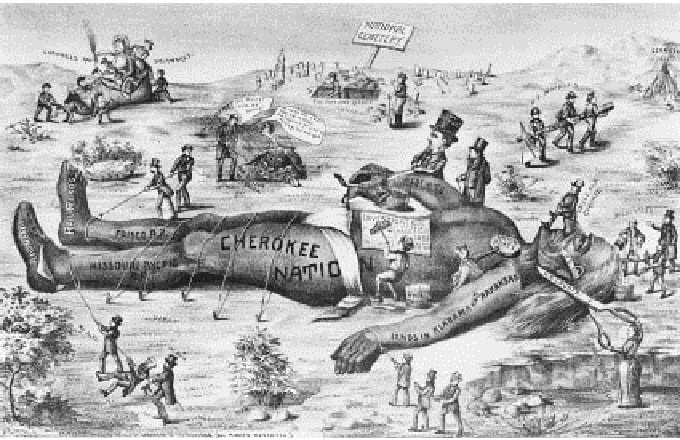Cherokee Nation
|
"Were it possible for you to be placed, or to imagine yourself for a moment to be, in the peculiar situation in which we stand, with the existing treaties and laws and the subsequent acts of the Govt. all before your eyes, you cannot but feel and see as we do!"
- John Ross, Cherokee Principal Chief Theda Perdue, 10 Apr. 2016, YouTube
"Our delegations were authorized, if it should become necessary, to consult and employ counsel to defend our cause before the Supreme Court of the United States, in which tribunal, as the conservatory of the Constitution, Treaties and laws of the Union, we can yet hope for justice, and to which we should fearlessly and firmly appeal." - John Ross, Cherokee Principal Chief
“The Cherokee nation, then, is a distinct community, occupying its own territory, with boundaries accurately described, in which the laws of Georgia can have no force.” — Chief Justice John Marshall
|
The Cherokee believed they were sovereign and challenged removal in legal ways. Two court cases were heard before the Supreme Court. In Cherokee Nation v. Georgia (1831), the Court refused to hear the case claiming the Cherokee were dependent nations not states and therefore could not file suit. In Worcester v. Georgia (1832), Chief Justice John Marshall ruled the Cherokee was a separate, sovereign nation and had the right to live free from the state. President Jackson and other government officials ignored the Court's ruling.
"We have nothing to do with political partyism; all that we ask for, is even handed justice & a faithful compliance on the part of the United States to protect us in all those sacred rights which have been solemnly guaranteed to our nation in their Treaties-and to stay the hand of oppressive injustice & violence." - John Ross, Cherokee Principal Chief
"The decision of the supreme court has fell still born, and they find that it cannot coerce Georgia to yield to its mandate." - President Andrew Jackson
|



